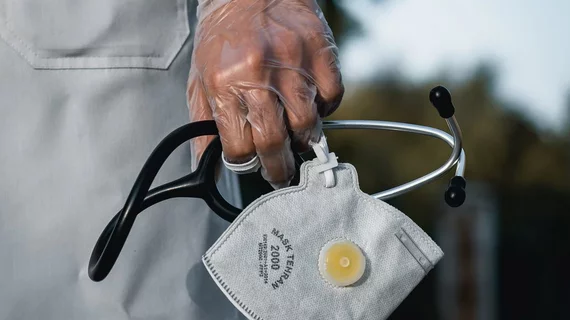Daily aspirin improves outcomes for hospitalized COVID-19 patients
Taking daily low-dose aspirin to combat cardiovascular disease is associated with improved outcomes among hospitalized COVID-19 patients, according to a new study published in Anesthesia and Analgesia.
The authors tracked data from more than 400 patients treated at one of four hospitals from March to July 2020. Nearly 24% of participants took daily low-dose aspirin either before they were admitted to the hospital or immediately after admission.
Overall, the team observed a 47% reduction in the overall risk of in-hospital mortality in patients taking the low-dose aspirin. There was also a 44% reduction in the risk of being placed on a mechanical ventilator and a 43% reduction in the risk of ICU admission.
The researchers accounted for several factors, including the presence of heart disease, kidney disease or the use of beta blockers, when performing their analysis. The key to these improved outcomes, they wrote, seems to be aspirin’s ability to limit blood clots.
“We believe that the blood thinning effects of aspirin provides benefits for COVID-19 patients by preventing microclot formation,” study co-author Michael A. Mazzeffi, MD, a professor of anesthesiology at the University of Maryland School of Medicine (UMSOM), said in a prepared statement. “Patients diagnosed with COVID-19 may want to consider taking a daily aspirin as long as they check with their doctor first.”
The authors did emphasize, however, that there is still additional research that needs to be done.
“This is a critical finding that needs to be confirmed through a randomized clinical trial,” lead author Jonathan Chow, MD, an assistant professor of anesthesiology at UMSOM, said in the same statement. “If our finding is confirmed, it would make aspirin the first widely available, over-the-counter medication to reduce mortality in COVID-19 patients.”
The full analysis is available here.

